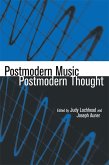Born in 1885 in Porto, Portugal, to a middle-class musical family, Guilhermina Suggia began playing cello at the age of five. A child prodigy, she was already a seasoned performer when she won a scholarship to study with Julius Klengel in Leipzig at the age of sixteen. Suggia lived in Paris with fellow cellist Pablo Casals for several years before World War I, in a professional and personal partnership that was as stormy as it was unconventional. When they separated Suggia moved to London, where she built a spectacularly successful solo career. Suggia's virtuosity and musicianship, along with the magnificent style and stage presence famously captured in Augustus John's portrait, made her one of the most sought-after concert artists of her day. In 1927 she married Dr Jos asimiro Carteado Mena and settled down to a comfortable life divided between Portugal and England. Throughout the 1930s, Suggia remained one of the most respected musicians in Europe. She partnered on stage with many famous instrumentalists and conductors and completed numerous BBC broadcasts. The war years kept her at home in Portugal, where she focused on teaching, but she returned to England directly after the war and resumed performing. When Suggia died in 1950, her will provided for the establishment of several scholarship funds for young cellists, including England's prestigious Suggia Gift. Mercier's study of Suggia's letters and other writings reveal an intelligent, warm and generous character; an artist who was enormously dedicated, knowledgeable and self-disciplined. Suggia was one of the first women to make a career of playing the cello at a time when prejudice against women playing this traditionally 'masculine' instrument was still strong. A role model for many other musicians, she was herself a fearless pioneer.
Dieser Download kann aus rechtlichen Gründen nur mit Rechnungsadresse in A, B, BG, CY, CZ, D, DK, EW, E, FIN, F, GR, HR, H, IRL, I, LT, L, LR, M, NL, PL, P, R, S, SLO, SK ausgeliefert werden.









